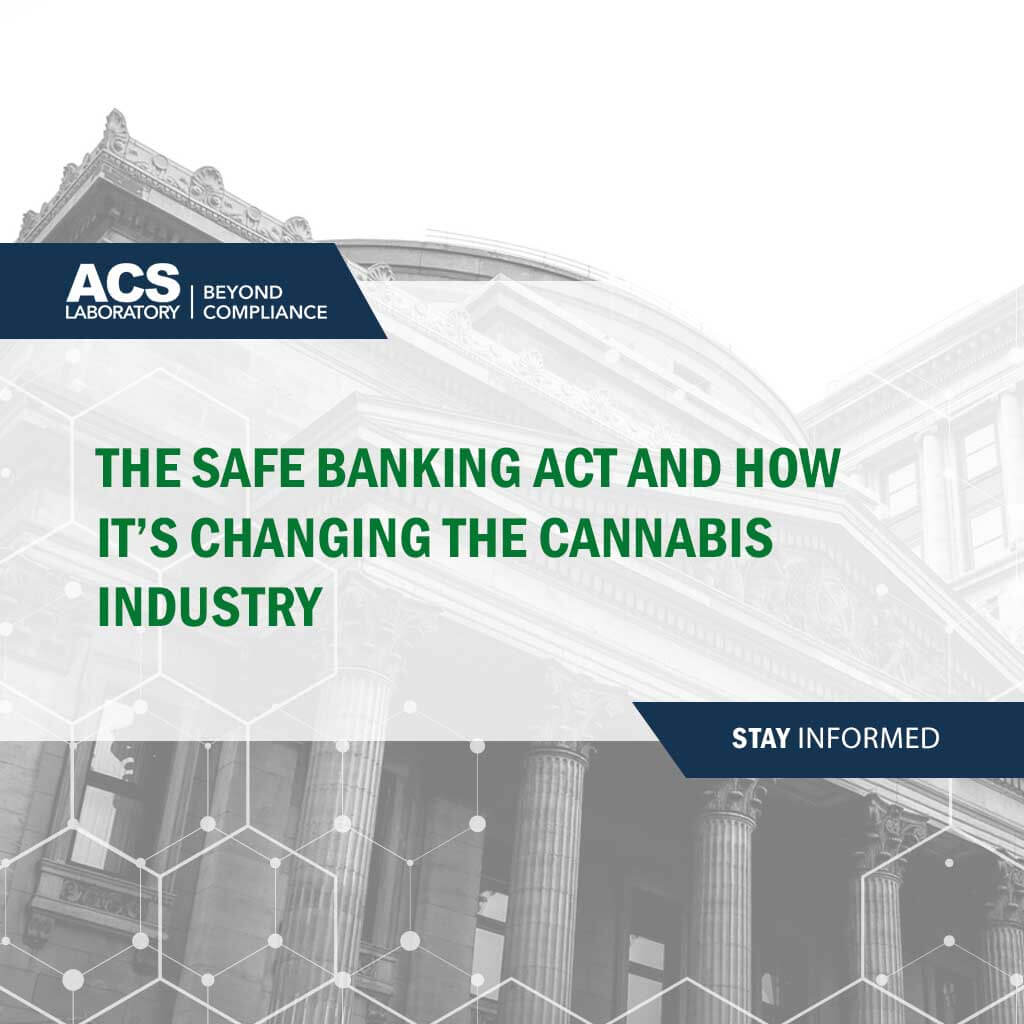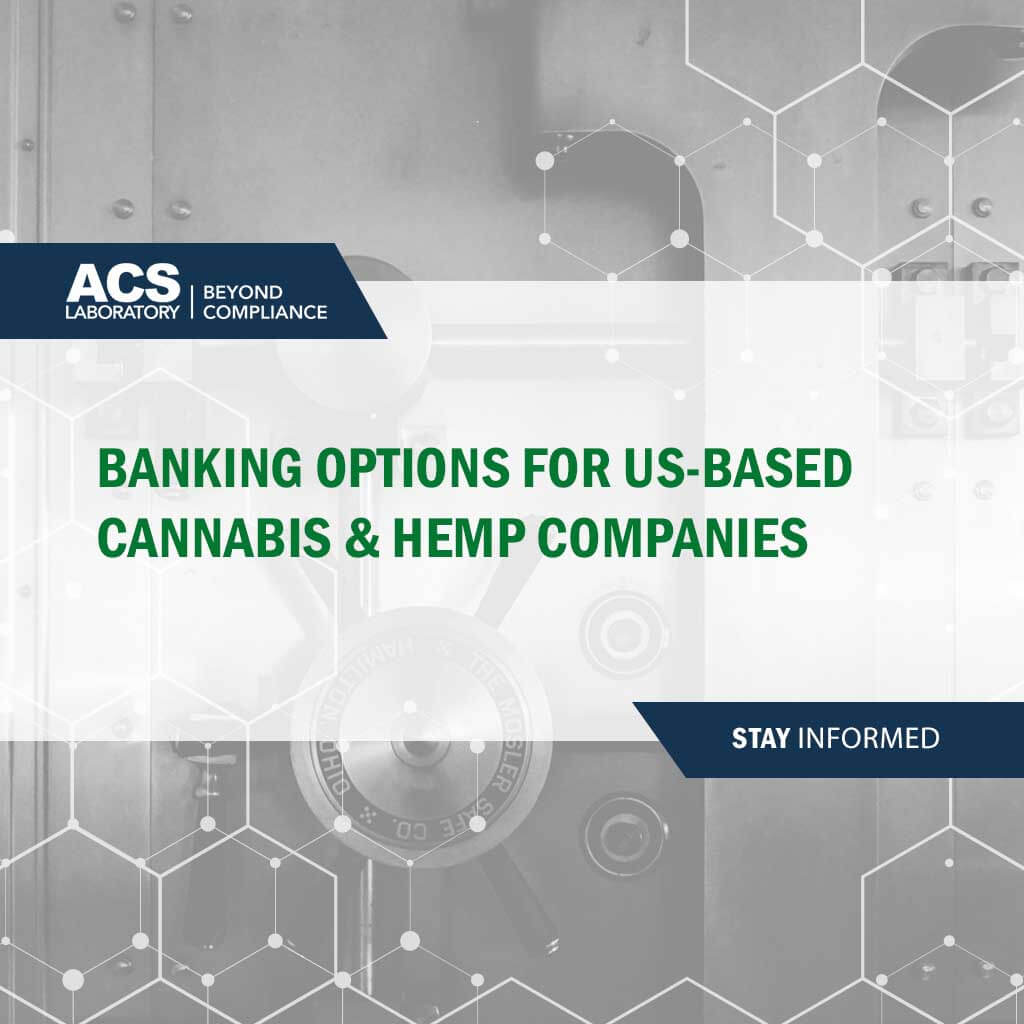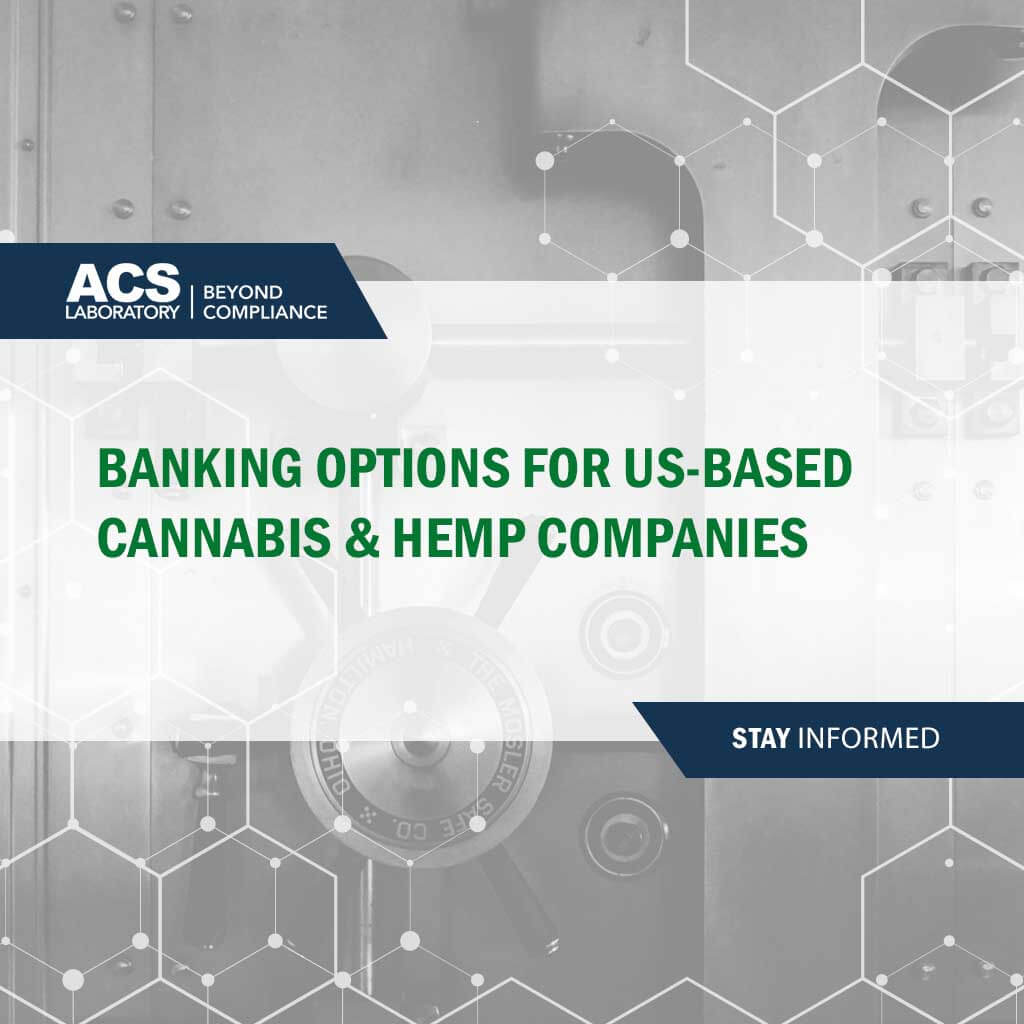Updated April, 19 2019
The SAFE Banking Act: Take Eight
After long-awaited anticipation, lawmakers introduced the eighth iteration of the SAFE Banking Act–this time with bipartisan support from over 100 House members and 30 Senate members (and growing!). Legislatures proposed the first version of this bill more than two years ago, and will vote for the eighth time on April 19, 2021.
The House has now passed the Act three times, with the most recent vote in the fall of 2019. It showed promise of passing but ultimately failed to make it to the Senate Banking Committee during that time. Now, there seems to be more bipartisan support than ever before.
With revitalized calls for change from the American Bankers Association and the Credit Union National Association, as well as other prominent industry voices, 2021 could finally be the year the SAFE Banking Act turns into law.
As a refresher, politicians drafted the SAFE Banking Act to produce a safe harbor for credit unions and banks, so they won't be held liable for supplying financial services to legal cannabis businesses. Under the Act, regulators cannot:
- Limit or terminate share insurance or deposit insurance of a banking institution that provides financial services to compliant cannabis businesses.
- Discourage or prohibit a financial institution from providing services to cannabis businesses.
- Discourage an institution from offering financial services to an account holder because of its affiliation with a cannabis business.
- Take adverse action on loan made to a person who owns a cannabis business or real estate leased to a cannabis business.
While many people would rather see cannabis become federally legalized first, this reform still helps bridge a critical gap between state and federal law. And it has the support of many lawmakers on both sides of the aisle. Even Treasury Secretary Steven Mnuchin voiced his concerns that the IRS had to build huge "cash rooms" to hold all the taxes paid by state-legal cannabis businesses.
The SAFE Banking Act would eliminate that burden and help ease serious safety concerns, of which Senator Jeff Merkley cites in a recent press release:
“No one working in a store or behind a register should have to worry about experiencing a traumatic robbery at any moment," said Merkley. "That means we can't keep forcing legal cannabis businesses to operate entirely in cash—a nonsensical rule that is an open invitation to robbery and money laundering. Let's make 2021 the year that we get this bill signed into law so we can ensure that all legal cannabis businesses have access to the financial services they need to help keep their employees safe.”
To drive the point across, the press release includes links to news articles covering the fatal shooting of a budtender in December. And many dispensaries across the country have been repeatedly burglarized and robbed over the past year alone. We'll continue to watch how things play out with the SAFE Banking Act and other cannabis-related legislation.
In the meantime, banks can get ready for the law to pass by looking for reputable cannabis businesses with verified COAs to partner.. Let’s hope it happens soon so banks can help responsible companies focus on growth, not where they’re going to keep their cash.
Original Content, Published Oct 2019
Due to the federal ban on marijuana, cannabis companies must operate financially as though they are drug trafficking organizations. Legitimate cannabis companies cannot claim deductions on their federal income taxes, which means they can pay up to a 90% rate!
Additionally, cannabis companies cannot apply for lines of credit or loans because the majority of banks refuse to do business with them. This forces the $10.9 billion industry to operate on a cash-only basis, limiting its ability to flourish.

While the federal ban on marijuana looms large over a booming market, pro-cannabis politicians have stepped up to offer relief through the SAFE Banking Act.
In this post:
- What is the SAFE Act
- What are the next steps
- SAFE Act for businesses
- SAFE Act and Canada
- Limitations of the legislation
- The Deadline
What is the SAFE Banking Act?
The SAFE Banking Act is the first piece of stand-alone cannabis legislation that would remove the threat of punitive action against banks in states where cannabis is legal. The idea is that the bill will help ease banks’ concerns about losing their licenses and inspire these institutions to open their doors to the marijuana industry.
On September 25, the Bill was released to the House of Representatives through a procedure that required a two-thirds vote. When the vote concluded, the bill passed by a landslide majority, 321:103. All but one Democrat voted yes, and nearly half of Republicans agreed. Case closed right?
The Legal Context
The case is not closed, but it’s definitely a huge step forward considering the context: In 2014 the House of Representatives passed a similar, but more limited amendment aimed at preventing the Treasury Department from penalizing banks that work with cannabis companies. The measure passed 231:192 in the House, but was never enacted into law because the conservative Senate refused to vote on it.
This time around Senate Republicans are more open to cannabis banking reform, but they’ll likely require a few edits to the bill before agreeing to support it. For instance, they may ask for concessions that favor legal Hemp and CBD companies as well as verbiage that offers greater protection to the firearms industry.
The Next Steps
After the bill is revised, Senate majority leader Republican Mitch McConnell must agree to bring it to the floor for a vote. While McConnell has come out recently as a pro-CBD advocate via his support for 2018 Farm Bill, he’s less enthusiastic about marijuana reform.
Thus far, McConnell has blocked nearly every piece of cannabis legislation that congress has sent for approval. But with overwhelming support for the 2019 SAFE Act, many hope he’ll have a change of heart.
Assuming McConnell agrees to send the bill to the floor, it must then pass the Republican controlled Senate by at least 60 votes. The trouble is that Republicans have historically voted no on pro-cannabis legislation and congress can’t rely on every Senate Democrat either. A selection of Democrats in conservative states have said they refuse to agree to cannabis banking reform until marijuana’s legal status is tackled at the federal level.
What the SAFE Act Means for US Businesses
Regardless of the uncertainty, industry advocates are optimistic that some version of this bill will pass providing vast benefits to banks, companies and budding cannabis entrepreneurs. While imperfect, the SAFE Bank Act addresses several issues including the current cash-only environment, which can increase the risk of violent crime and prevent vital access to loans and lines of credit.
With Increased access to banking, companies can start to invest more in hiring and innovation. Additionally, cannabis entrepreneurs with limited financial resources will be able to apply for loans and access the funds they need to launch their business plans. This will inevitably spur exponential growth in the industry.
What the SAFE Act Means for Canada
As Americans cross their fingers for a positive outcome, Canadians are less excited about the prospects. Since Canada legalized marijuana in 2018, the country’s stock market and investment banking industries have grown. If the SAFE Act passes, Canadians fear that American cannabis companies could move their cash out of Canada and over to the New York Stock Exchange and U.S. banks--according to Bloomberg News.
Limitations of the SAFE Banking Act
The SAFE Banking Act (if passed) will be a momentous step forward for the U.S. cannabis industry, but it may not be a disaster for Canada quite yet. Big American banks including Chase, Bank of America and PNC have all announced that they have no plans to work with cannabis companies until federal law is amended, citing the continued risk.

While big banks stall for federal reform, many expect that smaller credit unions and local banks will be the first to offer services to the marijuana industry. This is great news that should help decrease cannabis companies’ operating costs, increase security, reduce the black market, and create new customers for smaller community banks. All that’s left is the vote.
The Deadline for Answers
Senate Banking Committee Chairman Republican Mike Crapo said he hoped to conduct a vote on cannabis banking legislation before the end of 2019. Stay tuned and check in with our blog for the latest updates.










.png)
.png)
.png)
.png)
.png)